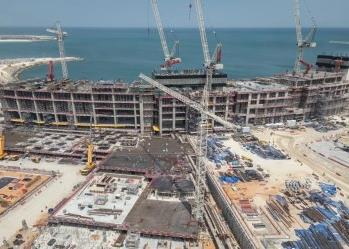
After one week of Moroccan control, an uninhabited island off the coast of the North African kingdom was wrested back to Spanish rule after Spain launched a pre-dawn assault on the disputed outcrop on 17 July.
The raid, involving several Spanish warships, fighter planes and crack troops to oust the six Moroccan policeman who had raised their country's flag over the island on 11 July, was described by Rabat as an 'invasion, in contradiction with international legality' and tantamount to an act of war. A spokesman from the Moroccan foreign affairs ministry said Spain caused the crisis 'after Morocco dispatched security elements to conduct routine operations to control smuggling and illegal immigration, in accordance with the requests of European countries, particularly Spain'. The Moroccan occupation coincided with three days of national celebrations marking the wedding of King Mohammed VI to Lalla Salma. The marriage was officially sealed in March, but the festivities were postponed because of the ongoing bloodshed in the occupied Palestinian areas.
The island, known as Parsley in Spain and Leila to Moroccans, has a surface area the size of a football pitch and is located 200 metres off northern Morocco. Madrid, which describes the island as one of its North African 'possessions' concedes that the rock is of no strategic importance and has offered to withdraw its troops, but only if Morocco agrees not to reoccupy.
Relations between the two countries have been on the ropes for some time. Morocco has always resented Spain's defence of the indigenous Sahrawis' right to self-determination in Western Sahara. Last October, Rabat withdrew its ambassador from Madrid complaining that it was dissatisfied with the quantity and level of bilateral ties. The move has been followed by months of arguments over fishing rights and illegal immigration into Spain through Morocco.
This latest territorial dispute is likely to fuel Spanish concern over its two North African enclaves Ceuta and Melilla on the Mediterranean coast of the Moroccan mainland. Spanish Foreign Affairs Minister Ana Palacio said on 18 July that Madrid would never negotiate over the future of the two areas. However, western diplomats have privately said that they expect Rabat to activate claims over the enclaves, which are dependent on Morocco for food and labour, when and if Spain gains control of Gibraltar.
You might also like...

Saudi economy contracts in Q1 2024
07 May 2024

Kuwait plans electric vehicle strategy
07 May 2024

Aramco first quarter profit drops by 14.5%
07 May 2024
A MEED Subscription...
Subscribe or upgrade your current MEED.com package to support your strategic planning with the MENA region’s best source of business information. Proceed to our online shop below to find out more about the features in each package.





